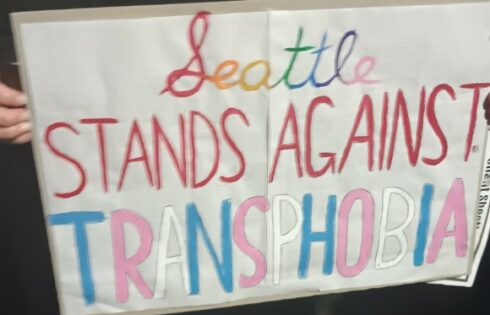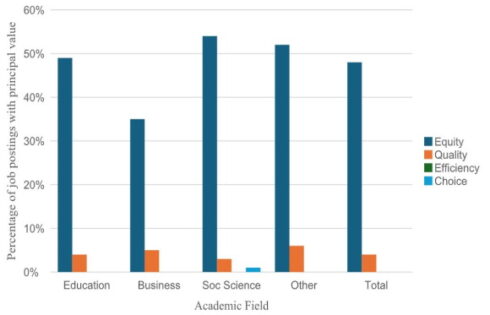
Current approaches are ‘heavily Western, state-centric, militarized, masculinized, and colonial’
If humanity is to move beyond the bounds of its earthly confines, adequate technology isn’t the only thing standing in its way.
There’s also the critical studies, gender, and sexuality academic set and their concerns.
Just a couple of weeks ago, the dean of social sciences at Wesleyan University voiced worries that space exploration may follow a “European Christian imperialist” pattern, and that indigenous beliefs about “celestial bodies” won’t be taken into consideration.
There’s also the “indigenous scholars” who warned merely listening for evidence of alien civilizations could be interpreted as “eavesdropping” and/or “surveillance.”
Now, the Canadian Department of National Defence thought it a prudent use of taxpayer funds to spend over $32,000 for an “intersectional feminist” perspective regarding space-related development.
Give yourself a couple pats on the back if you guessed what the report concluded.
You got it: According to the Canadian Taxpayers Federation, the report “Hidden Harms: Human (In)security in Outer Space” says “current approaches to outer space are ‘heavily Western, state-centric, militarized, masculinized, and colonial,’ and encourage practices that are ‘racist, exploitative, elitist, and environmentally destructive.’”
 An “intersectional feminist approach,” the reports claims, can help examine “how gender and other social identities overlap in ways that may compound the benefits, harms, and insecurities that people experience in relation to outer space and space systems.”
An “intersectional feminist approach,” the reports claims, can help examine “how gender and other social identities overlap in ways that may compound the benefits, harms, and insecurities that people experience in relation to outer space and space systems.”
MORE: U. investigates black debate instructor who argued space isn’t real, created by whites
In short, the report centers on how high tech/space development will disproportionately affect “marginalized” groups such as women and minorities, in particular the “Global South.”
Report authors Jessica West (pictured) and Vaishnavi Panchanadam note their concerns about the use of gendered and “colonial” language (emphasis in the original):
Existing approaches are gender-biased. The language of major treaties, resolutions, and other international instruments related to outer space is highly gendered and biased toward males. Terms such as ‘mankind’, ‘astronauts and envoys of mankind’, ‘man’s entry into outer space’, ‘manned and unmanned stations of the moon’, ‘manned spacecraft’, and ‘man-made’ are frequently used. …
[t]hese approaches normalize violence and exploitation by using colonial-biased terms like ‘exploration’ and ‘conquest’, referring to space as a frontier and terra nullius, and depicting outer space as a hostile and desolate environment that is unpeopled/inhuman and controlled so that it can provide an extractable resource.
West and Panchanadam say “some forms of knowledge” are viewed as more “valuable” and “scientific” than others, and as such a decolonial approach can be implemented with greater consideration of “oral, cosmological, and situated knowledges.”
These include African ubuntu which “emphasizes the relational, communal, social, spiritual, and environmental interconnectedness of all beings,” and “indigenous stewardship” which centers “respect, reciprocity, and relationality with the land, the environment, and other non-human beings.”
According to their respective bios, West researches “approaches to peace and disarmament rooted in humanitarian protection and gender perspectives” while Panchanadam studies “critical theory, gender and politics, decolonial praxis, and migration.”
The Canadian Taxpayers Federation’s Kris Sims said “It took the equivalent of a neighbourhood’s worth of income tax bills to pay for this study […] I think a lot of Canadians can think of a lot of causes that need $32,250 more.”
Even buying a Prius for a real scientist to get to and from his/her research lab would be a better use of the funds.
MORE: Stanford academic: Race to colonize Mars is ‘patriarchal,’ akin to Columbus’s rape of America
IMAGES: Shutterstock.com; U. Waterloo
Like The College Fix on Facebook / Follow us on Twitter







Please join the conversation about our stories on Facebook, Twitter, Instagram, Reddit, MeWe, Rumble, Gab, Minds and Gettr.